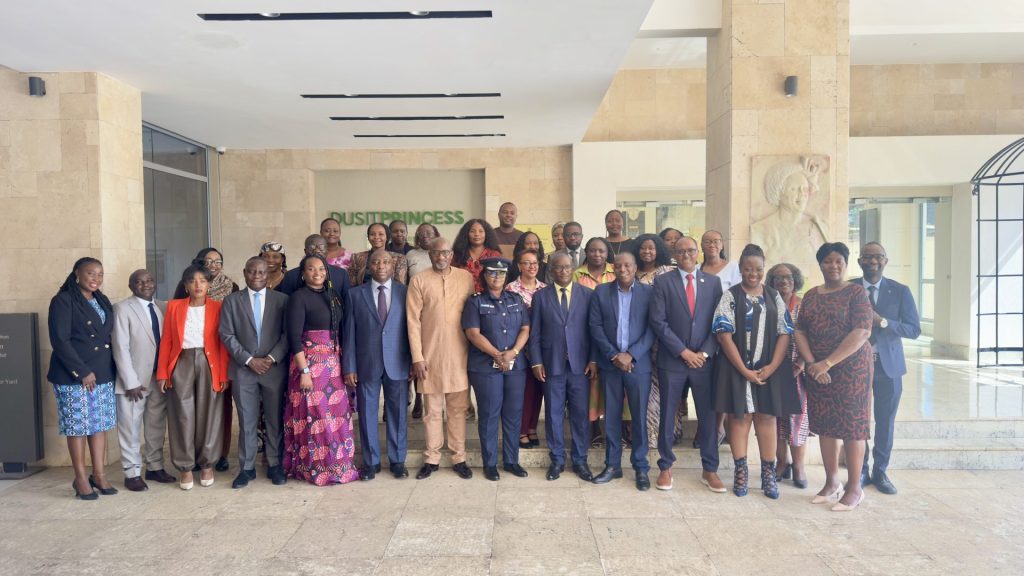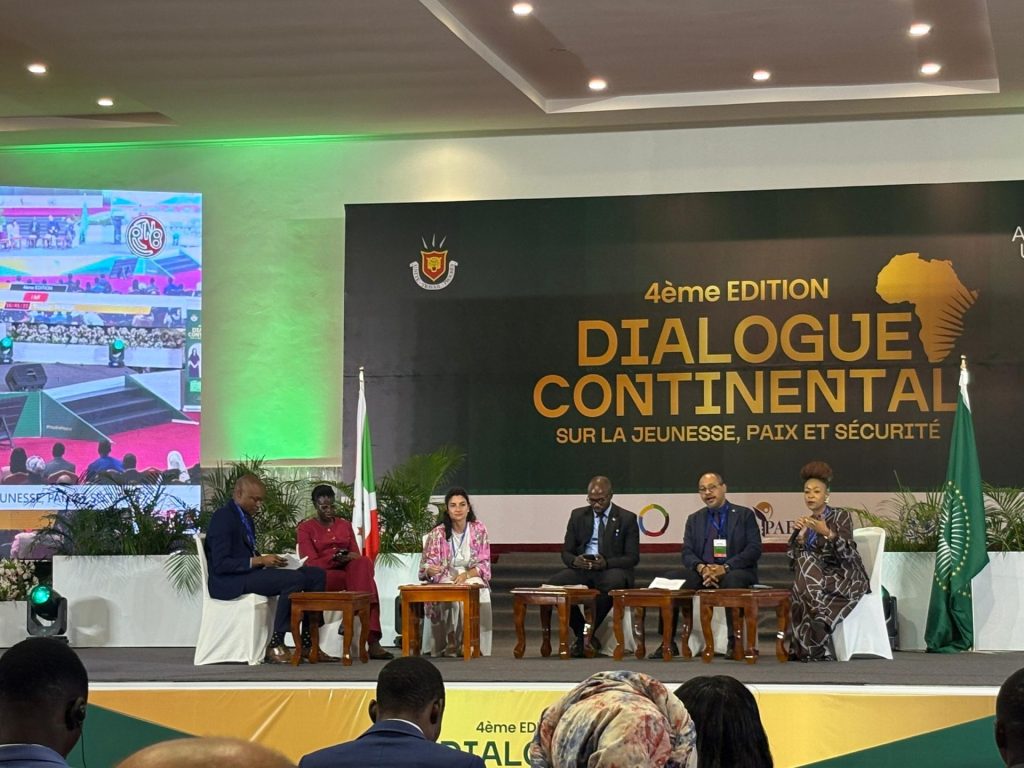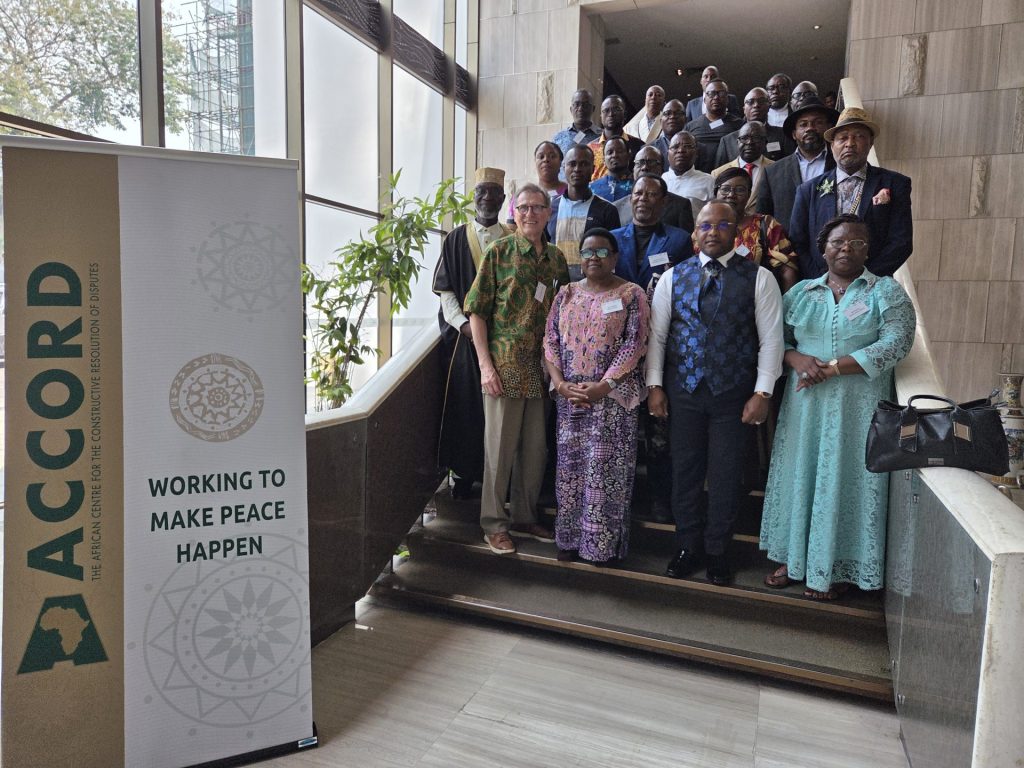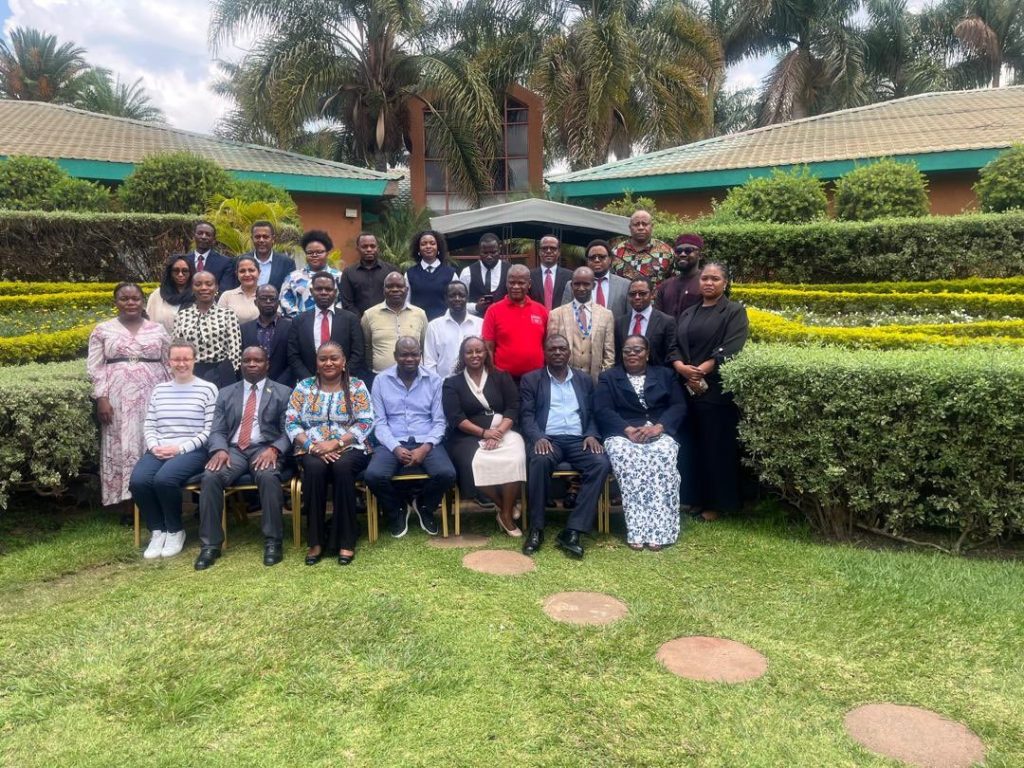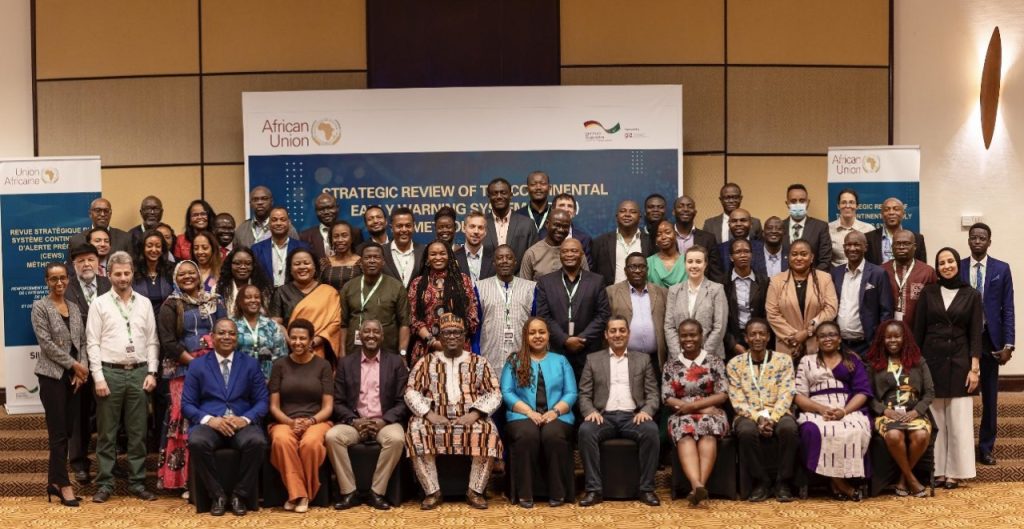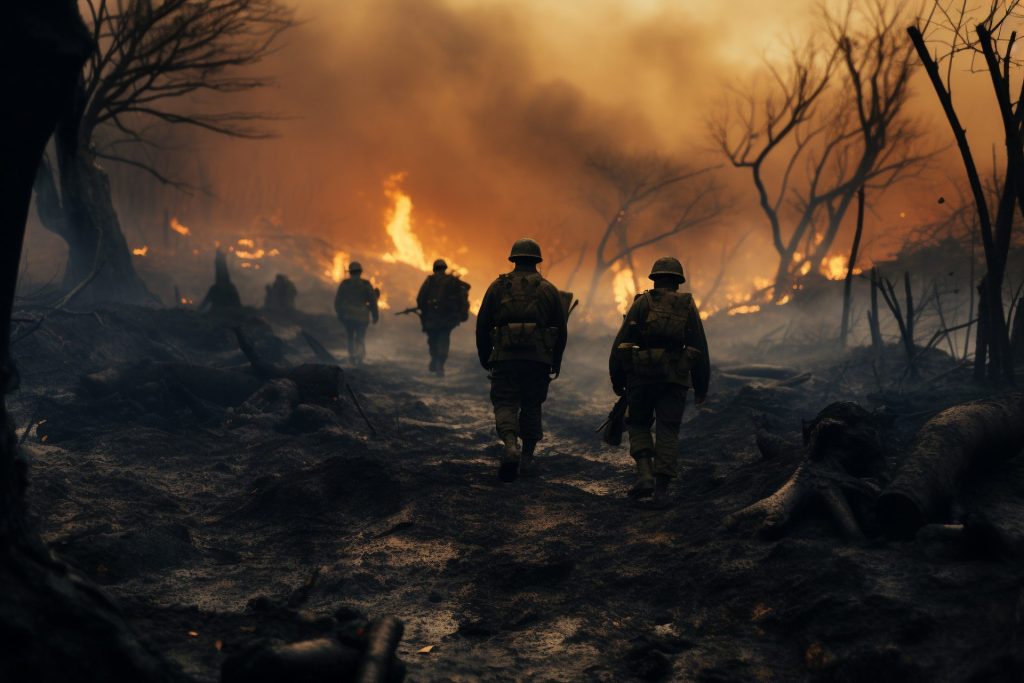In preparation for COP17, the African Centre for the Constructive Resolution of Disputes (ACCORD) in Durban held a two day expert seminar on 15 & 16 September, to identify issues and recommendations for ensuring that adaptation to climate change is conflict-sensitive. Policy makers, practitioners and scientists presented new research on the linkages between climate change and conflict in Africa, and analysed various tools, policies and approaches to ensure the prevention of conflicts arising from climate change but also from adaptation efforts. The outcomes of the seminar will be distributed in advance of COP17 and will be presented at a number of side events during COP17.
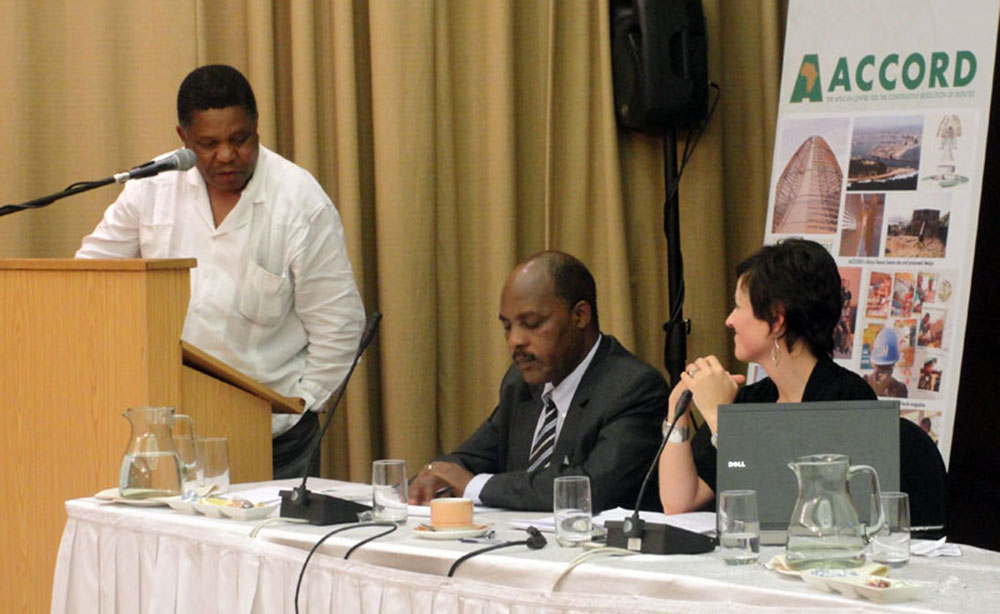
The seminar considered the following:
- The scientific evidence for linkages between climate change and conflict.
- The importance of natural resource management as a form of conflict-sensitive climate change adaptation.
- The prospects and challenges for people who migrate as a result of climate change, and for communities who follow mobile livelihoods, such as pastoralists and nomadic peoples.
- Lessons for climate change adaptation from existing conflicts and efforts to prevent conflicts, in particular the engagement between local communities, NGOs, civil society and public and private sectors.
- Ways to govern conflict-sensitive climate change adaptation.
- Tools and technologies which could assist in developing adaptation measures that are conflict-sensitive; and how peacekeeping and peacebuilding work can contribute to conflict-sensitive climate change adaptation.
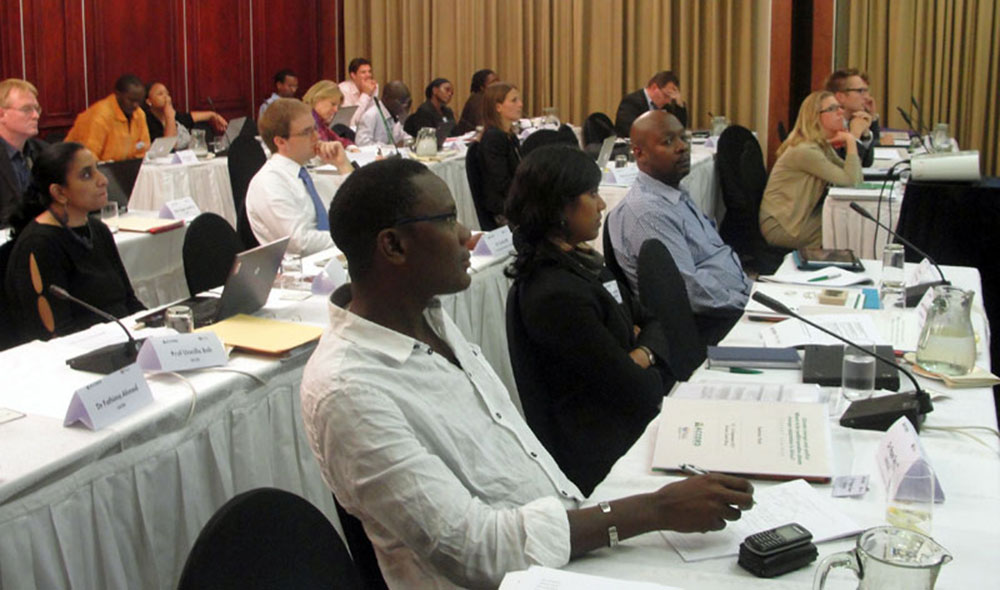
Key Outcomes
Key outcomes from the seminar include:
Although the scientific debate about exactly how climate change can cause conflict rages on, there is convincing evidence that climate change-related stresses impacting on communities and nations will lead to conflict – especially in communities where people depend on the environment for food and income. In cases where the conditions for conflict are ripe, such as in areas with social or political tensions, climate change could also act as a trigger for conflict and worsen existing conflicts. Climate change, which can cause rainfall and temperature changes, can also lead to scarcities of land and water, used by people for agricultural and other productive purposes. Africa in particular, given high levels of poverty and weak governance/institutional ability which influence adaptive capacity, is likely to bear the brunt of the negative impacts associated with climate change. The critical levels of CO2 in the atmosphere are also absorbed by the oceans, causing what is called ‘ocean acidification’ which is projected to destroy ecosystems of fish, shellfish and seaweed. The people who live along Africa’s 40,000km coastline, and make their living from it, will also be greatly affected by ocean acidification, and conflicts are likely to arise from this process.
For these and other reasons there is a definite need for adaptation projects and programmes to be considerate of the ways climate change could lead to conflict and the manner in which conflicts could weaken adaptive capacity. It is therefore imperative that when projects are planned, conflict is considered. Also, it is necessary to be aware that adaptation projects themselves (such as building of dams or seawalls, or agricultural development projects) could create conflicts.
A key issue that emerged from the seminar is the way livelihoods and the management of natural resources in Africa are linked. For adaptation projects to strengthen communities, vulnerable groups (such as women) and countries against climate change, the way people make their living and get their food needs to be protected and strengthened. An important way to do that is to improve natural resource management by adapting our practices for managing resources (such as land, water and coastal regions) and to introduce new, sustainable ways for people to make a living. For instance, in order to prevent conflict, natural resource management cannot be a top-down approach, but will need to include and consult with communities. There is also a wealth of traditional knowledge about the management of resources and conflicts at a community level. In Africa, where people have adapted to climate changes for thousands of years, this knowledge and experience needs to be captured to improve the management of resources and conflicts and to feed into early-warning systems.
One particular challenge will be the range of cross-border issues that need to be considered as part of adaptation. These include migration as a result of climate change and conflicts; the future of people who follow mobile livelihoods, such as pastoralists; and the sharing of transboundary resources. Bilateral, regional and continental cooperation will be essential in order to ensure that cross-border issues and the management of resources are done in a conflict-sensitive manner. There is also great potential for actors in government, civil society, academia and even the private sector, to collaborate across borders to build sustainable livelihoods and peace, such as through early warning systems that track vulnerability to climate change and research. The opportunities for sharing the benefits of common property resources are additional prospects that should be considered.
Conflict-sensitive climate change adaptation is at the core of existing and future work in the fields of development, the environment and peace. Given that the linkages between climate change and conflict are complex, and operate at different scales across time and space, it is clear that there is a need for different scientific disciplines to work together on research, including local knowledge from communities who have already shown resilience. It is also clear that policy makers across different ministries and even between countries and regions need to work together, to develop plans for adaptation that is conflict-sensitive. Funding and practical work in development, the environment and peacebuilding, cannot operate in silos as these fields of work are already highly interconnected, and need to become even more so, if we are to prevent conflicts resulting from climate change or adaptation. Funding for climate change adaptation should be at the core of the environment-development-peace triangle where issues of livelihoods, conflict resolution, natural resource management, human rights and gender are situated.
About the Climate Change & Conflict Expert Seminar
Papers were presented by staff from the United Nations Environment Programme; the African Union, the University of Dar Es Salaam; the University of KwaZulu-Natal; ACCORD; the Global Partnership for the Prevention of Armed Conflict (GPPAC); University of Nairobi; Deutsche Welthungerhilfe; Refugee Law Project (Uganda); the Massachusetts Institute for Technology (MIT); the IUCN Commission on Environmental, Economic and Social Policy; Uppsala University; International Alert; Stockholm Environmental Institute; George Mason University; University of Melbourne; CLISEC at the University of Hamburg; University of Bonn; Adelphi Research (Berlin); and the Center for International Conflict Resolution at Columbia University. Expert consultants on human rights, environmental management and climate change adaptation facilitated sessions.



